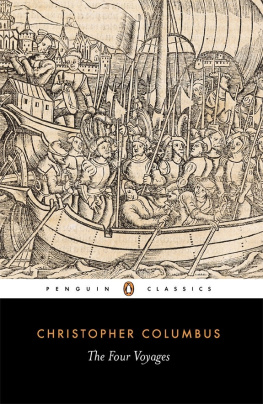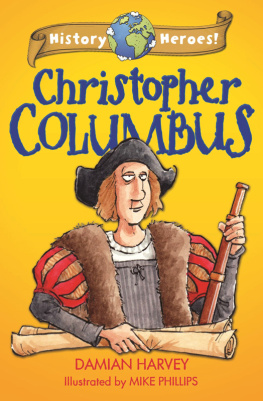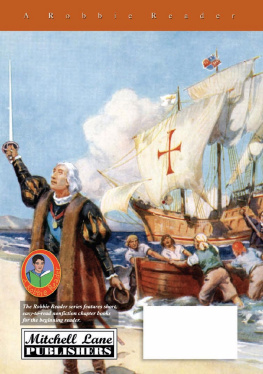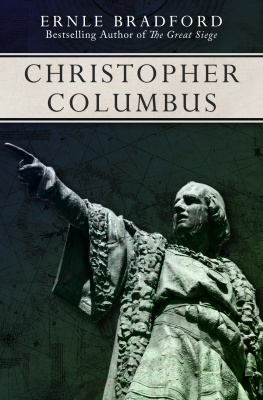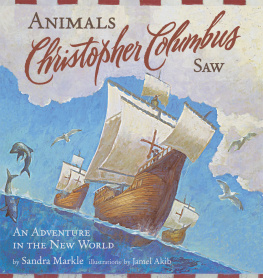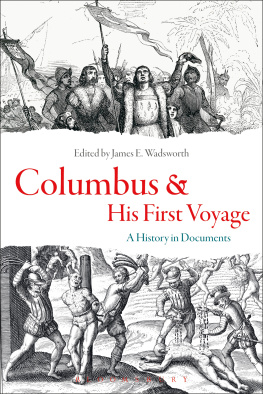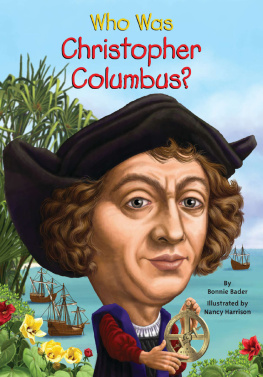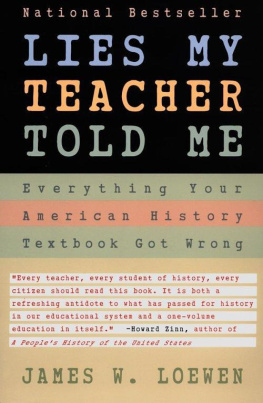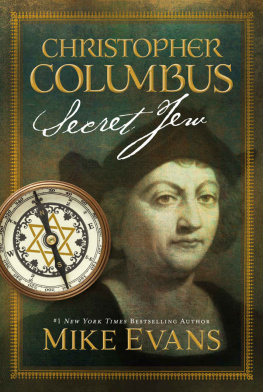Christopher Columbus, Edward Everett Hale
The Life of Christopher Columbus Discover The True Story of the Great Voyage & All the Adventures of the Infamous Explorer
Madison & Adams Press, 2017.
ISBN 978-80-268-7699-1
This is a publication of Madison & Adams Press. Our production consists of thoroughly prepared educational & informative editions: Advice & How-To Books, Encyclopedias, Law Anthologies, Declassified Documents, Legal & Criminal Files, Historical Books, Scientific & Medical Publications, Technical Handbooks and Manuals. All our publications are meticulously edited and formatted to the highest digital standard. The main goal of Madison & Adams Press is to make all informative books and records accessible to everyone in a high quality digital and print form.
Table of Contents
PREFACE
This book contains a life of Columbus, written with the hope of interesting all classes of readers.
His life has often been written, and it has sometimes been well written. The great book of our countryman, Washington Irving, is a noble model of diligent work given to a very difficult subject. And I think every person who has dealt with the life of Columbus since Irvings time, has expressed his gratitude and respect for the author.
According to the custom of biographers, in that time and since, he includes in those volumes the whole history of the West India islands, for the period after Columbus discovered them till his death. He also thinks it his duty to include much of the history of Spain and of the Spanish court. I do not myself believe that it is wise to attempt, in a book of biography, so considerable a study of the history of the time. Whether it be wise or not, I have not attempted it in this book. I have rather attempted to follow closely the personal fortunes of Christopher Columbus, and, to the history around him, I have given only such space as seemed absolutely necessary for the illustration of those fortunes.
I have followed on the lines of his own personal narrative wherever we have it. And where this is lost I have used the absolutely contemporary authorities. I have also consulted the later writers, those of the next generation and the generation which followed it. But the more one studies the life of Columbus the more one feels sure that, after the greatness of his discovery was really known, the accounts of the time were overlaid by what modern criticism calls myths, which had grown up in the enthusiasm of those who honored him, and which form no part of real history. If then the reader fails to find some stories with which he is quite familiar in the history, he must not suppose that they are omitted by accident, but must give to the author of the book the credit of having used some discretion in the choice of his authorities.
When I visited Spain in 1882, I was favored by the officers of the Spanish government with every facility for carrying my inquiry as far as a short visit would permit. Since that time Mr. Harrisse has published his invaluable volumes on the life of Columbus. It certainly seems as if every document now existing, which bears upon the history, had been collated by him. The reader will see that I have made full use of this treasure-house.
The Congress of Americanistas, which meets every year, brings forward many curious studies on the history of the continent, but it can scarcely be said to have done much to advance our knowledge of the personal life of Columbus.
The determination of the people of the United States to celebrate fitly the great discovery which has advanced civilization and changed the face of the world, makes it certain that a new interest has arisen in the life of the great man to whom, in the providence of God, that discovery was due. The author and publishers of this book offer it as their contribution in the great celebration, with the hope that it may be of use, especially in the direction of the studies of the young.
EDWARD E. HALE.
ROXBURY, MASS., June 1st, 1891.
CHAPTER I EARLY LIFE OF COLUMBUS
Christopher Columbus was born in the Republic of Genoa. The honor of his birth-place has been claimed by many villages in that Republic, and the house in which he was born cannot be now pointed out with certainty. But the best authorities agree that the children and the grown people of the world have never been mistaken when they have said: America was discovered in 1492 by Christopher Columbus, a native of Genoa.
His name, and that of his family, is always written Colombo, in the Italian papers which refer to them, for more than one hundred years before his time. In Spain it was always written Colon; in France it is written as Colomb; while in England it has always kept its Latin form, Columbus. It has frequently been said that he himself assumed this form, because Columba is the Latin word for Dove, with a fanciful feeling that, in carrying Christian light to the West, he had taken the mission of the dove. Thus, he had first found land where men thought there was ocean, and he was the messenger of the Holy Spirit to those who sat in darkness. It has also been assumed that he took the name of Christopher, the Christ-bearer, for similar reasons. But there is no doubt that he was baptized Christopher, and that the family name had long been Columbo. The coincidences of name are but two more in a calendar in which poetry delights, and of which history is full.
Christopher Columbus was the oldest son of Dominico Colombo and Suzanna Fontanarossa. This name means Red-fountain. He bad two brothers, Bartholomew and Diego, whom we shall meet again. Diego is the Spanish way of writing the name which we call James.
It seems probable that Christopher was born in the year 1436, though some writers have said that he was older than this, and some that he was younger. The record of his birth and that of his baptism have not been found.
His father was not a rich man, but he was able to send Christopher, as a boy, to the University of Pavia, and here he studied grammar, geometry, geography and navigation, astronomy and the Latin language. But this was as a boy studies, for in his fourteenth year he left the university and entered, in hard work, on the larger college of the world. If the date given above, of his birth, is correct, this was in the year 1450, a few years before the Turks took Constantinople, and, in their invasion of Europe, affected the daily life of everyone, young or old, who lived in the Mediterranean countries. From this time, for fifteen years, it is hard to trace along the life of Columbus. It was the life of an intelligent young seaman, going wherever there was a voyage for him. He says himself, I passed twenty-three years on the sea. I have seen all the Levant, all the western coasts, and the North. I have seen England; I have often made the voyage from Lisbon to the Guinea coast. This he wrote in a letter to Ferdinand and Isabella. Again he says, I went to sea from the most tender age and have continued in a sea life to this day. Whoever gives himself up to this art wants to know the secrets of Nature here below. It is more than forty years that I have been thus engaged. Wherever any one has sailed, there I have sailed.
Whoever goes into the detail of the history of that century will come upon the names of two relatives of his Colon el Mozo (the Boy, or the Younger) and his uncle, Francesco Colon, both celebrated sailors. The latter of the two was a captain in the fleets of Louis XI of France, and imaginative students may represent him as meeting Quentin Durward at court. Christopher Columbus seems to have made several voyages under the command of the younger of these relatives. He commanded the Genoese galleys near Cyprus in a war which the Genoese had with the Venetians. Between the years 1461 and 1463 the Genoese were acting as allies with King John of Calabria, and Columbus had a command as captain in their navy at that time.


